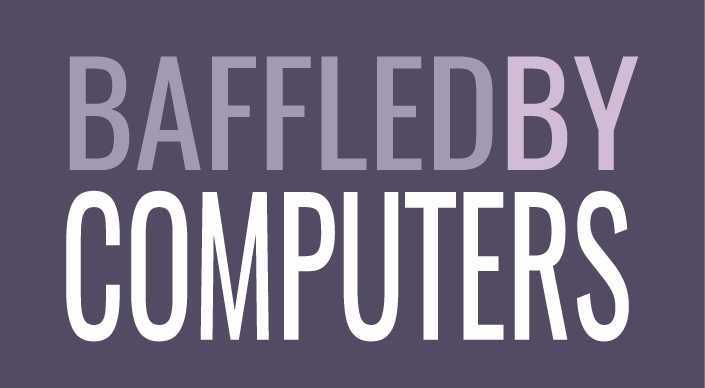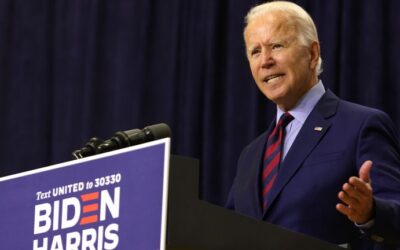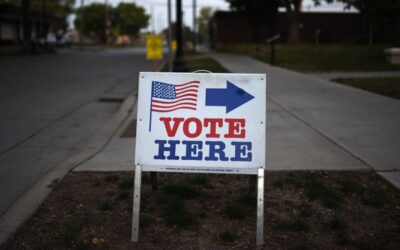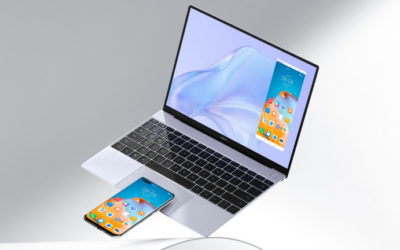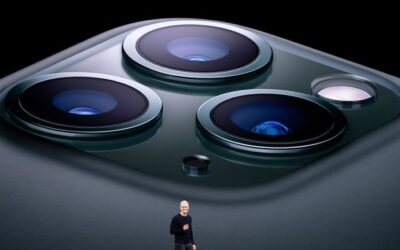Professor Sir Martin Hairer from Imperial College London has been awarded $3m (£2.3m) from Mark Zuckerberg’s science foundation for developing equations related to stirring a cup of tea.
Sky News Articles
Coronavirus contact-tracing app launch date revealed
The NHS coronavirus contact-tracing app for England and Wales will be launched on 24 September following months of delays.
Celebrity video game streamer Ninja returns to Twitch
Celebrity video game streamer Ninja has returned to Twitch, the platform owned by Amazon, little more than a year after his high-profile move to Microsoft’s rival service Mixer.
Trump: Deadline for TikTok sale won’t be extended – and app could be banned
President Trump says he will not be extending the 20 September deadline for TikTok’s parent company ByteDance to sell the popular video-sharing app.
Hackers from China, Iran and Russia 'attempting to spy on Trump and Biden campaigns'
Hackers from China, Russia and Iran are attempting to spy on the presidential campaigns of Donald Trump and Joe Biden, according to Microsoft.
The tech giant says that the same group of cyber criminals from Russia that attempted to interfere in the 2016 US election are trying to break into email accounts belonging to staff members from across the political spectrum.
It adds that a group based in China has targeted Joe Biden’s election campaign, while a team of hackers in Iran are continuing to attack accounts related to Donald Trump, ahead of polling day on 3 November.
Image: Hackers have unsuccessfully targeted Joe Biden
Strontium, the Russian group, was “identified in the Mueller report as the organisation primary responsible for the attacks on the Democratic presidential campaign in 2016,” according to Microsoft’s head of cyber security, Tom Burt.
The firm said Strontium is trying to “harvest people’s login credentials or compromise their accounts”, and has targeted consultants, think tanks and political parties, including those in the UK.
Advertisement
Strontium are said to have masked their activities by rotating more than 1,000 IP addresses every day, as well as engaging in “password spray”, which allows them to automate their activities.
A simple guide to the 2020 presidential race
The group in China, known as Zirconium, is specifically targeting Joe Biden’s presidential campaign “through non-campaign email accounts belonging to people affiliated with the campaign”, Mr Burt said.
More from China
The group has so far been unsuccessful in their attempts to breach those accounts.
Phosphorus, based in Iran, has attempted to access accounts associated with Donald Trump’s presidential campaign over the summer, but Microsoft has been able to take control of the URLs used by the group, after being given permission by courts in Washington DC.
Mr Burt said: “We disclose attacks like these because we believe it is important the world knows about threats to democratic processes.
:: Listen to the Daily podcast on Apple Podcasts, Google Podcasts, Spotify, Spreaker
“It is critical that everyone involved in democratic processes around the world, both directly or indirectly, be aware of these threats and take steps to protect themselves in both their personal and professional capacities.”
He also asked U Congress to approve funding to states to help them with cyber crime.
Speaking to NBC, Jamal Brown, Joe Biden’s press secretary, said: “We have known from the beginning of our campaign that we would be subject to such attacks and we are prepared for them.”
Thea McDonald, deputy national press secretary for the Trump campaign, said in an email to NBC that it was “not surprising to see malicious activity directed at the campaign.”
“We work closely with our partners, Microsoft and others, to mitigate these threats. We take cybersecurity very seriously and do not publicly comment on our efforts.”
Twitter to label and remove false content about US election
Twitter has announced plans to label and remove messages that spread false information about how to vote, or that could intimidate or suppress voter turnout.
The rules will come into place on Thursday 17 September and come a few hours after another incident of US President Donald Trump falsely claiming, as he has done repeatedly, that the use of postal ballots would lead to electoral fraud.
Twitter said it will label or remove tweets that claim victory before the election results have been certified, and warned it would take similar action against messages that seek to “incite unlawful conduct to prevent a peaceful transfer of power or orderly succession”.
Sending out 80 MILLION BALLOTS to people who aren’t even asking for a Ballot is unfair and a total fraud in the making. Look at what’s going on right now!
— Donald J. Trump (@realDonaldTrump) September 10, 2020
Both Facebook and Twitter have now announced plans to address what Mark Zuckerberg described as “an increased risk of social unrest across the country” in the days following the election.
Twitter said it will label or remove tweets that claim victory before the election results have been certified, and warned it would take similar action against messages that seek to “incite unlawful conduct to prevent a peaceful transfer of power or orderly succession”.
Advertisement
In July the president refused to state that he would accept the result of the election as he dismissed the validity of polls which showed him behind the Democratic candidate Joe Biden, prompting concerns he and his supporters would not comply with the results.
Twitter added, of particular importance during the 47 days until 3 November, it would focus on “disputed claims that could undermine faith in the electoral process”.
More from Twitter
As an example the company cited “unverified information about election rigging, ballot tampering, vote tallying, or certification of election results” which would match the claims made by President Trump, although he is not mentioned in the announcement.
In addition the company said it would take action against “false or misleading information that causes confusion about the laws and regulations of a civic process, or officials and institutions executing those civic processes”.
Twitter has previously taken action against the president’s tweets for glorifying violence against protesters during the civil unrest following the police killing of George Floyd.
The company has also previously labelled messages by Mr Trump which claimed that postal ballots will be “substantially fraudulent”, despite numerous studies providing evidence to the contrary.
….living in the state, no matter who they are or how they got there, will get one. That will be followed up with professionals telling all of these people, many of whom have never even thought of voting before, how, and for whom, to vote. This will be a Rigged Election. No way!
— Donald J. Trump (@realDonaldTrump) May 26, 2020
The president subsequently accused the company – and the entire social media industry – of censorship and anti-conservative bias, before signing an executive order aimed at curbing protections for the sites as publishers.
US Attorney General William Barr, who was appointed by President Trump, has supported the president’s claim that mail-in ballots could be vulnerable to tampering.
Despite these claims, Ellen Weintraub, the commissioner of the US Federal Election Commission, said there was “simply no basis for the conspiracy theory that voting by mail causes fraud”.
Nearly one in four voters mailed in their ballots in the 2016 election and an even higher proportion of postal ballots are expected this year because of the coronavirus pandemic.
Voting procedures are controlled by states independently of the federal government and most states are encouraging voters to use postal ballots to reduce gatherings at polling stations.
Studies, such as those by the Brennan Centre for Justice, have found that electoral fraud is exceedingly rare accounting for between 0.00004% and 0.00009% of the votes cast – equivalent to at most 225 votes in the context of the roughly 250 million which were cast in the 2016 election.
Huawei unveils two new laptops, watches and earbuds amid US sanctions
Huawei has announced six new products – two laptops, two watches, and two earbud devices – although questions about its ability to continue to source US computer chips loomed over the launch.
American restrictions on Huawei, stated to be based on security grounds, will prohibit US technology companies from providing components such as computer chips to the company, which are used across its product lines.
Despite the potential impact of this, which is leading to redundancies in the company’s enterprise business in the UK, Huawei is launching a range of consumer products – and is introducing a new mobile operating system too amid the threats its phones would be banned from licensing Google’s Android.
Image: Huawei’s MateBook X is lighter than the MacBook Air. Pic: Huawei
Among the products announced at the company’s developers’ conference on Thursday are two new laptops, the MateBook X and the MateBook 14.
The MateBook X is thinner and lighter than Apple’s MacBook Air, weighing just 1kg thanks to a magnesium aluminium alloy, while the portable MateBook 14 weighs just under 1.5kg.
Advertisement
Both laptops come with the company’s new Huawei Share multi-screen technology, allowing Huawei phones to be peered with the laptops just by tapping them on the touchpad.
The touchpad for the MateBook X is an improvement on the last generation too, with a larger surface area and eight piezoelectric plates beneath it increasing sensitivity and offering haptic feedback from all four corners.
More from Huawei
The MateBook X has a 13″ screen with a 3000×2000 display at 278 pixels per inch, and functions as a touchscreen – while the MateBook 14 has a 14″ display with a 2160×1440 resolution at 185 ppi.
Where the MateBook 14 really offers something different is in the processors powering it, having a top-shelf option of an AMD Ryzen 4800H CPU with 16GB of RAM.
Huawei is also introducing four new wearables, including the next generation Huawei Watch GT 2 Pro which comes in two versions mainly differentiated by bands, a professional-looking leather version and a sports version with a rubber strap.
The Huawei Watch GT 2 Pro supports performance tracking and measuring for more than 100 sports, including golf driving and skiing, which is potentially indicative of the market the company is aiming at.
The smartwatch can also be charged wirelessly from a Huawei smartphone, which will effectively donate its own battery life to the watch using reverse charging.
Image: The Huawei Watch Fit (L) and Watch GT 2 Pro have been launched. Pic: Huawei
Also available is the Huawei Watch Fit, a cheaper smartwatch with a display a bit more similar to the Apple Watch’s, which comes with 96 workout modes and has generally a few features less than the flagship GT 2 Pro.
The two near earphones are Huawei’s wireless FreeBuds Pro and FreeLace Pro, the latter of which connects wirelessly to its users’ smartphones but comes with a lace strap to catch the buds if they fall out of the ear.
Both have active noise cancellation embedded, and the FreeBuds Pro come with a more cubic stem than rivals, which allows for a few more touch gestures to control the volume as well as pausing or playing a song, and skipping a track if desired.
Huawei did not make any reference to US sanctions in the launch, despite the threat that Microsoft may be prohibited from licensing any software to the company in the future.
This potentially means Huawei itself will have to replicate and update any security issues discovered in Windows 10 – just as it may have to do for its phones which run on Google’s Android OS – if those companies are permanently banned from licensing software to it.
The company is set to release a new operating system called HarmonyOS which can function across its laptop and mobile devices, which could replace Windows and Android in the case of a ban – ultimately reducing revenue for the US technology companies.
Speaking quietly can reduce coronavirus spread, study finds
Talking more quietly can reduce the spread of coronavirus, a study has found.
A reduction of six decibels in average speech levels can have the same effect on cutting transmission of COVID-19 as doubling a room’s ventilation, according to an advance copy of a paper detailing the research.
Live coverage of the latest coronavirus news and updates
Image: Quiet zones in high-risk indoor environments such as hospitals were recommended by the researchers
Six scientists from the University of California, Davis, said their findings suggested more quiet zones in high-risk indoor spaces – such as hospitals and restaurants – could benefit efforts to curb the disease’s spread.
The World Health Organisation amended its guidance in July to acknowledge the possibility of aerosol transmission, such as during choir practice, or when in restaurants or fitness classes.
Advertisement
The new research showed microscopic droplets ejected while speaking evaporate to leave behind aerosol particles big enough to carry viable virus.
It said an increase of about 35 decibels in loudness, or the difference between whispering and shouting, boosts the particle emission rate by 50 times.
More from Covid-19
Normal conversation is generally above the 10-decibel range, while ambient noise in restaurants is around 70.
Coronavirus infections are rising among young people – these charts show where
Lead researcher William Ristenpart said: “Not all indoor environments are equal in terms of aerosol transmission risk.
“A crowded but quiet classroom is much less dangerous than an uncrowded karaoke bar where patrons are socially distanced but talking and singing over loud music.”
The study emerged as the global death toll from coronavirus passed 900,000 on Wednesday, as worldwide cases topped 27.8 million.
Newcastle Uni 'completely crippled' by pandemic and cyber attack
Staff at Newcastle University are warning the institution is “completely crippled” and said they have “no idea how we are going to welcome students in three weeks’ time” due to the double impact of the coronavirus pandemic and a cyber attack.
For new starters, term is due to begin on 28 September with continuing students returning a week later due to COVID-19, but staff have expressed concerns to Sky News this could be delayed due to the situation with the institution’s IT services and the university’s ability to handle coronavirus requirements.
A spokesperson for the university has told Sky News: “Our semester will commence as planned… and we have business continuity arrangements in place to register our students.
“Our teams are working extremely hard to ensure this group of young people – who have already been through so much this summer as a result of COVID – are able to start here at Newcastle in a few weeks’ time and this sort of misinformation designed to sow confusion and anxiety among our students is unhelpful.”
A staff member who spoke to Sky News on the condition of anonymity dismissed this allegation, and said there were “genuine and legitimate concerns which the university should be focusing on rather than managing its reputation”.
Advertisement
“The university is absolutely not being straight here,” they added, noting that as of Wednesday afternoon the university was unable to allocate accommodation for first year students due to the cyber attack taking down the system.
The rule of six – here’s what you can and can’t do in England from Monday
Hackers claim to be currently holding Newcastle University to ransom having broken into its computer network and stolen data before encrypting the machines using the DoppelPaymer malware on 30 August.
More from Covid-19
The university has manually registered “over 1,000 medicine and dentistry students who started with us this week” it told Sky News, with more manual registrations expected, meaning those students can access their student loans.
Several purportedly stolen documents have already been leaked to the criminals’ dark web site, and a message on Twitter apparently from the hackers has threatened to leak students’ personal data as part of their efforts to extort the university.
Students have complained to Sky News and on social media that the university hasn’t adequately informed them about the incident, and the university has not made any public statements about a ransom attempt.
A non-public email sent to staff and seen by Sky News also does not mention the cyber extortion, and suggests the university has still not been able to determine whether individuals’ data was stolen by the hackers.
In an FAQ titled “Is my personal information compromised?” sent to staff and seen by Sky News, the university appears to suggest it still hasn’t established what may have been stolen despite more than a week of incident response.
“The investigation into the incident is still at an early stage,” the answer to the FAQ says. “IT colleagues continue to work hard on the systems recovery plan, and to support the police and the National Crime Agency with their enquiries,” it adds.
“Please be assured we take the security of our systems extremely seriously and we were able to respond quickly to this incident,” the FAQ assures its audience – although not all have been convinced.
Referencing this statement, a member of staff who spoke to Sky News on the condition of anonymity, said: “I have lost all faith in my employers’ ability to keep my data safe given they aren’t even telling us what is going on.”
A university spokesperson said: “The university has a large and extensive IT estate with many systems. Each system must now be checked carefully and thoroughly to understand the extent of any damage and to preserve any evidence for the police.
“We have been as open as we can be during this phase with both our staff and students, without risking compromising or delaying this investigation. We are sorry for the disruption this is causing to our staff, students and partners.”
Sky News understands that the university is still on the first page of a six-page recovery plan, and attempting to establish which of its 1,500 servers have been infected by the malware. It is not clear how it will progress through this recovery plan by the beginning of the academic term.
Universities told not to send students home in the event of an outbreak
Sky News has learnt that the damage from the breach for university staff and students could also include the hackers having accessed plain text passwords – passwords stored as “PASSWORD” rather than in a protected format.
Correspondence between students and the IT service desk shared with Sky News confirms that their passwords are stored without being encrypted, with IT staff able to retrieve students’ passwords and email them to members if they are forgotten.
This is a significant information security shortcoming, with most authorities recommending that passwords are saved in a format so that even the system administrators are unable to retrieve them.
It is also directly contrary to advice from the UK’s National Cyber Security Centre (NCSC) which explicitly recommends that organisations “do not store passwords as plain text”.
Despite this the university told Sky News: “The university uses industry-standard tools and processes to record and protect account information and, in particular, passwords,” and claimed: “We follow NCSC guidance on password practices.”
The university’s password policy requires the passwords are eight characters long – no more and no less – and only contain numbers and letters which are insensitive to case, making it much easier for criminals to guess them.
If the university is assessed to have been careless in protecting personal information, it could face a significant fine under the General Data Protection Regulations.
However the UK’s Information Commissioner’s Office has historically been hesitant to hand out such fines for security breaches at higher education facilities.
In a publicly available FAQ, the university has warned: “It is possible we will need to reset all Newcastle University user accounts but we will let you know when this needs to happen.”
Apple event: New gadgets to expect later today
Apple is set to announce new gadgets later today, but there are rumours the next-generation iPhone will be kept back until October.
Here’s what to expect – and what not to expect.
Image: Tim Cook will reportedly not unveil new iPhones until October
Due to the coronavirus, the event is being held online – like Apple’s developer conference in June – and will broadcast at 6pm UK time later today (10am locally in California).
You’ll be able to follow along on the Sky News website and app.
An invite sent to media from Apple has confirmed the title of the event as “Time Flies” – potentially a reference to the new Apple Watch 6, which is among the devices expected to be announced.
Advertisement
Alongside that, the iPad Air 4 could be making an appearance, but there are suggestions that the iPhone 12 won’t be announced this September due to disruptions caused by the pandemic.
Consumers will have to wait until another event – this one rumoured for October – for the next generation of 5G-compatible iPhones to become available.
More from Apple
Fortunately, there are rumoured to be some interesting new little technologies making an appearance this month.
Image: Apple is expected to launch a new Apple Watch at its event
Perhaps the most novel are the Apple AirTags – similar to the Tile Bluetooth trackers, which can be added to a keyring or other physical items and located using an iPhone app.
Particularly exciting is the idea of an augmented reality tracker, which would enable users to pull up the app on their iPhone and get an overlay of where the tag is located in the immediate environment.
It could be particularly handy if you don’t know which room you left your keys in.
Even if the tag has been left further afield, there are suggestions it could be located by other iPhones through Apple’s “Find My” app mesh network.
This tech could be used for other Apple devices, too.
Image: Apple is rumoured to be introducing its own version of Bluetooth trackers
Little is known about the Apple Watch 6, but – as the company’s premium health tech product – rumours suggest it could have even more features relevant to the battle against COVID-19.
Among these are a new sensor that can track blood oxygen levels (something which is already available in Samsung Galaxy Watch 3), which is a potential sign of respiratory infections.
Additional rumoured Watch features include a Touch ID fingerprint sensor and a mechanism for measuring the wearer’s temperature, although these rumours are less credible than others.
Image: A new device in the iPad range has been rumoured
A new iPad Air model has been suggested, too – updating the range of lightweight and thinner devices within Apple’s tablet series.
A new model has been predicted to be announced at the event – although it isn’t clear what features will be included beyond improvements to the stereo system and TouchID sensor.
Apple also has some big changes scheduled for MacOS and the Safari browser, although it isn’t clear whether these are due to be announced in September or at a potential event later in October.
